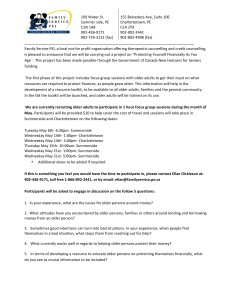If you read any parenting blog, magazine or website there always seems to be content on children or adolescents and the use of cell phones. Each one seems to have conflicting information: What age is the right age? How often can they use it? Who can they call? What can they use it for?
The truth is, a cookie cutter approach to parenting around cell phone use does not work, and in fact it rarely ever does. So there you are left wondering, “What is the norm? Am I doing this right? Will this ruin my relationship with my child?”
Ah- the joy of parenting!
A piece of advice; forget the blog, the magazine and Google and go back to the basics. Children are born without social knowledge or social skills, and they eagerly look for someone to imitate. That “someone” is more than likely you. You are your child’s first teacher and role model. They learn by watching you and they behave by following your example.
That being said, recently an article on the subject of parenting cell phone use came across my desk. Surprisingly enough it appeared to go back to the basics; it was based on common sense and logical reasoning. Included was a list of rules written by Janell Hoffman to her son Greg who had just gotten an iPhone from his parents. Let me highlight a few of the 18 rules.
#3- If it rings, answer it. It is a phone. Say hello, use your manners. Do not ever ignore a phone call id the screen reads “Mom” or “Dad”. Not ever.
#4- Hand the phone to one of your parents promptly at 7:30pm every school night and every weekend night at 9:00pm.
#7- Do not use this technology to lie, fool, or deceive another human being. Do not involve yourself in conversations that are hurtful to others. Be a good friend first or stay the hell out of the crossfire.
#8-9- Do not text, email, or say anything through this device you would not say in person.
#11- Turn it off, silence it, put it away in public; especially in a restaurant, at the movies, or while speaking with another human being. You are not a ride person; do not allow your phone to change that.
#13-Don’t take a zillion pictures and videos. There is no need to document everything. Live your experiences. They will be stored in your memory forever.
#14- Leave your phone at home sometimes and feel safe and secure in that decision. It is not alive or an extension of you. Learn to live without it. Be bigger and more powerful than FOMO- fear of missing out.
#17- Keep your eyes up. See the world happening around you. Stare out a window. Listen to the birds. Take a walk. Talk to a stranger. Wonder without Googling.
My first reaction to this list was, “I like it…but we as adults don’t even follow these rules, so how can we expect children to?”
Many adults justify their behaviour by saying that we gain privilege with age. I however believe this is only an excuse and we should not set double standards.
So why as parents do we find ourselves texting at supper, talking on the phone in the car, or scrolling through Facebook while helping our child with their homework? According to Author Sherry Turkle, PhD, and professor in MIT’s Program in Science, Technology, and Society, we love to multitask!
“The reason multitasking feels so good [is that] our brains give us extra shots of dopamine [a brain neurotransmitter that affects mood] for every new task we multitask. We’re actually being rewarded chemically for every new task. But with every new task our performance is degrading. So if you’re emailing and putting contacts in the Rolodex, maybe it’s OK if your performance is a little degraded. Those things are degradable. But when we use these technologies of efficiency and bring them into our intimacies, we bring them into an area where we do ourselves damage.”
Our intimate human relationships should not be compromised; this involves our relationship with our children. Although accomplishing multiple things at once is clearly rewarding, the practice of mindfulness can also have huge benefits. Mindfulness means being aware, paying close attention, and being continuously present. Practicing mindfulness can have huge rewards and benefits for not only you, but your children and family.
As the parent, take on the responsibility of setting a stand for your children. Sit down and speak with your spouse and children about what this will look like, and define a “mobile culture” for your household. Remember, the number one key to success is having the whole team on board!
(https://scopeblog.stanford.edu/2011/02/11/parent-child_relationships/)



